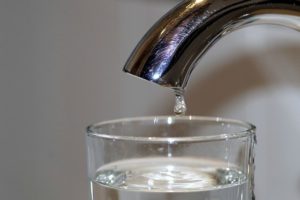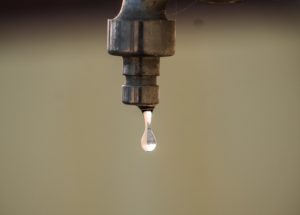 Auckland has known for the past four months “one of the most serious droughts in the history of the city” . With water stocks well below those usual for this period, and scant rainfall, Auckland had to enter the first stage of water restrictions targeting both households and businesses on May 16.
Auckland has known for the past four months “one of the most serious droughts in the history of the city” . With water stocks well below those usual for this period, and scant rainfall, Auckland had to enter the first stage of water restrictions targeting both households and businesses on May 16.
Since the start of 2020, the Auckland region has received less than half of the precipitation normally recorded during this time of year. This drought has important consequences on the level of water storage for the region, which is constantly decreasing. According to Watercare – New Zealand’s largest water and wastewater company – the situation is worrying: the volume of water stored in the dams has fallen to less than 50% of their total capacity for the first time in 25 years.
Restrictions on the use of water came into effect on May 16. The first step in three, the restrictions in this phase 1 prohibit the residential use of water pipes outdoors when they are connected to the metropolitan water supply network. Commercial car washes must use recycled water, and athletic fields can only be watered if they have an irrigation system equipped with soil moisture or rain sensors.
 “This drought is something that affects everyone, and we all have a role to play in helping to save water,” said Linda Cooper , Liaison Advisor for the Watercare Company; ” It’s there that you intervene ! ” The company, like the mayor Phill Goff , asks Aucklanders to invest to manage the water crisis, ” think before opening the tap ” to save 20 liters of water per day, per person.
“This drought is something that affects everyone, and we all have a role to play in helping to save water,” said Linda Cooper , Liaison Advisor for the Watercare Company; ” It’s there that you intervene ! ” The company, like the mayor Phill Goff , asks Aucklanders to invest to manage the water crisis, ” think before opening the tap ” to save 20 liters of water per day, per person.
If that seems complicated, the advice given by Watercare makes it possible to put the scale of the task into perspective: spend a minute less in the shower, turn off the tap while brushing your teeth, do not wash your car, or even use the half-way. Flushing toilets are daily practices requiring little effort, but which prove to be hugely effective if repeated by as many people as possible.
Fines (up to $ 20,000) may be issued against people who do not comply with the restrictions, but the process is intended above all to raise awareness: to avoid more prohibitive restrictions, residents will have to consume drinking water. reasoned way. Water is precious: while water covers three quarters of the Earth’s surface, less than 3% of this water is fresh, and less than 1% of this fresh water is in accessible liquid form. Faced with the increase in population and activities using water, water needs have greatly increased, even though the amount of fresh water available has not changed. More conscious use of water is therefore essential.
